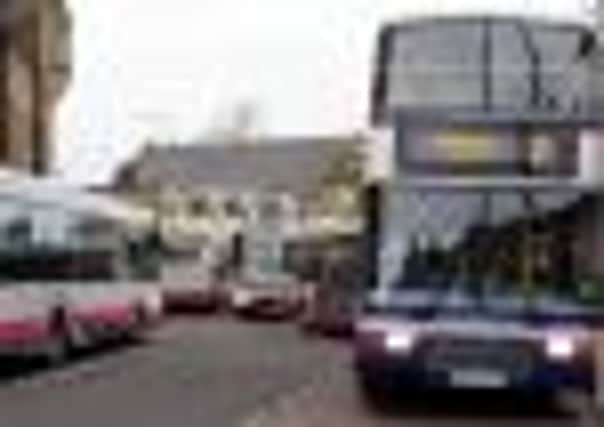Bus company FirstGroup guilty of misleading public over emissions advert


The watchdog upheld a complaint that the Aberdeen-based company’s emission reductions were not sufficiently low for the phrase to be used in a television advertisement – and warned the firm that it should not broadcast the advert in its current form again.
The advert, broadcast in two regions of the UK last September by the company’s subsidiary FirstBus and also shown on the company’s website, showed a bus with a poster on the back stating “We love low emissions” – with a heart in place of the word “love”.
Advertisement
Hide AdAdvertisement
Hide AdMore text printed on the screen said: “Our buses produce 4.97 per cent less carbon than conventional diesel buses”.
But a complainant contacted the watchdog on the grounds that, for a vehicle to be considered “low emission” under the UK government’s Department for Transport (DfT) guidelines, it has to produce 30 per cent less carbon than would conventional diesel buses.
Transport Scotland has the same guideline for its own definition of “low carbon” buses.
“The authority noted that the DfT’s definition of a low carbon bus was a definition produced for their own purposes, namely government emissions targets,” said the ASA report.
“However, we considered most viewers would expect the definition of ‘low emissions’ in a transport ad to be in line with the DfT’s definition.
“We considered that in stating ‘We love low emissions’ in the ads, some viewers might have been misled into believing that FirstGroup’s buses were comparable to those low emissions buses, when they only produced 4.97 per cent less CO2, not 30 per cent. We, therefore, concluded the ads were misleading.”
In a reply to the complaint, FirstGroup insisted that the complainant had misinterpreted the ads, claiming they did not refer to low emission buses specifically but to low emissions in general.
The company said that, regardless of the interpretation, it did not believe that the DfT’s definition of low-emission buses was widely known among the general public.
Advertisement
Hide AdAdvertisement
Hide Ad“As a company we are committed to reducing the impact our fleet has on the environment,” said a spokeswoman for First UK Bus.
“We operate a number of hybrid buses throughout the UK, including ten hybrid buses in Glasgow, and continue to invest significantly in our fleet, making our buses more environmentally friendly.
“Our ‘low emissions’ claim was in relation to our wider-reaching corporate aims in respect of climate change rather than a comparison to the Department for Transport’s benchmark, demonstrated by the use of qualifying on-screen text to avoid this being misleading.”
Clearcast, which approved the advert, also responded to the complaint. It said it had ensured the “We love low emissions” claim was qualified with on-screen text stating how much less CO2 FirstGroup buses produced compared with conventional buses.
The organisation, which is owned by six major UK broadcasters to pre-approve advertising in Britain, said that because the qualifying text appeared on-screen at the same time as the claim, no-one would have been misled by the “low emissions” assertion.